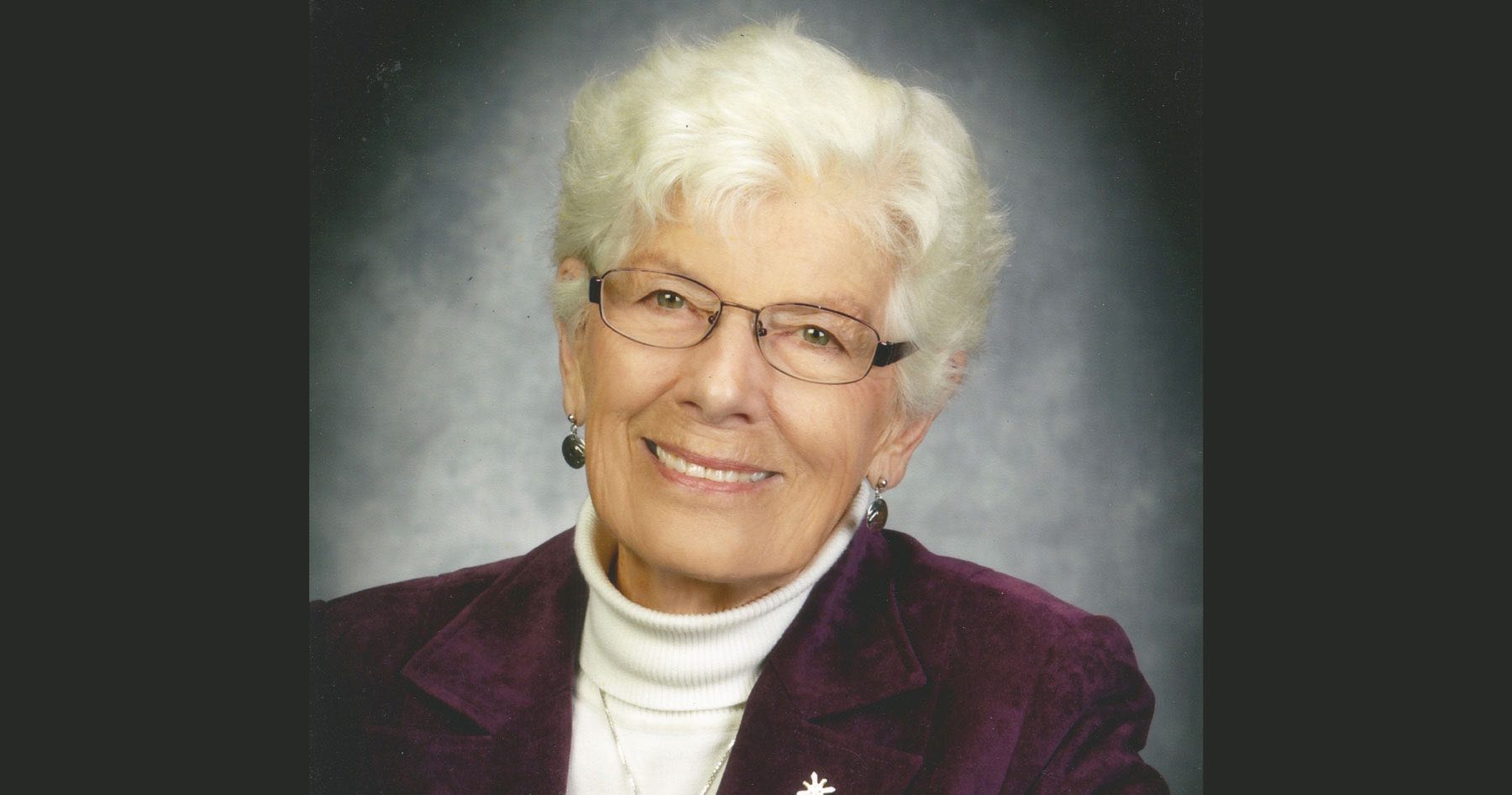An activist ahead of her time
Mavis Gillie, a devoted Anglican and advocate for Indigenous Peoples, particularly in Canada’s North and British Columbia, passed away in Victoria on March 28, 2021.
When Mavis returned to Victoria in the 1970s after having lived in the Northwest Territories for 10 years, she was fired up to correct the injustices she knew first-hand were experienced by the Dene people in the North. In 1968, as a young mother living in Fort Smith, N.W.T., she first ventured into activism by organizing the community to successfully save Axe Handle Hill from development. It is now a park.
In 1970, Mavis helped organize a five-day World Congress of Regional Ophthalmology in Yellowknife as eye problems were a major concern for children in the North. Along with her church, she supported the many children who were hospitalized away from home with eye problems.
Back in Victoria in the 1970s, as a founding member of the Victoria chapter of Project North, an ecumenical social action group working for justice for First Peoples in Canada, she assisted and supported the Dene and Inuit in their struggles against the Mackenzie Valley Pipeline. She later assisted Indigenous Peoples in opposing logging in Haida Gwaii and the Stein River Valley and organized support for the Nisga’a Treaty, the first modern-day comprehensive treaty in British Columbia, finalized in 2000.
In 1979 and 1980, Mavis was involved in opposing the granting of a permit to AMAX for the dumping of molybdenum mining tailings into Alice Arm near Kitsault. This included sending letters to the prime minister and flying to New York at the request of the Nisga’a Nation to address AMAX officials there.
In 1987, Mavis was instrumental in stopping a proposed marina’s being built in Saanichton Bay, a major fishery for the Tsawout people. This was as important a battle as the ones for South Moresby, Meares Island and the Stein Valley. In 1988, she assisted in organizing the “Run for Justice” by Jack Thornburgh and Steve Underwood, which aimed to attract support for the Gitxsan and Wet’suwet’en and their rights and title court case. More recently, she supported the return of ancestral bones to the Tseycum First Nation from the American Museum of Natural History in New York.
Mavis was an originating member of and served 13 years on the Anglican Church’s public and social responsibility unit formed in 1973.
At the 1996 Diocesan Synod, a motion was made that the 82nd Synod of the Diocese of B.C. “encourage the clergy and laity to develop effective means of keeping Church members informed on the Church’s support and encouragement of aboriginal peoples, etc.” After speaking to Bishop Jenks, Mavis was part of the small group that met to form Aboriginal Neighbours, under the auspices of the program committee of the Diocese at that time. Aboriginal Neighbours, over many years, has helped in building bridges and making friends with First Nations neighbours.
Mavis did her homework and had a thorough knowledge of the issues she campaigned for. She was not intimidated by people in authority and was not shy in holding them to account.
As a 20-year-old, Mavis was chosen to represent Canada at the World Christian Youth Conference in Oslo, Norway. Perhaps it was this experience that led her to become the active, tireless campaigner she was. Her daughters remember her during their childhood being in the kitchen either talking on the telephone or tapping at her typewriter — often into the wee hours of the morning. Mavis did her homework both on paper and in person and had a thorough knowledge of the issues she campaigned for. She was not intimidated by people in authority and was not shy in holding them to account. Her remarkable drive really stood out and irritated some people (especially politicians). She wrote letters, made phone calls, visited with band members, organized and attended conferences, and presented at review panels, corporate boards and legislative committees. One example of Mavis’s persistence in dealing with those in authority occurred in the 1980s when she entered then-Premier Bill Vander Zalm’s office with a basket of daffodils and said, “Premier, I’m Mavis Gillie. I wanted to bring you some flowers, and by the way, we need to talk.”
In 1992, long before the Truth and Reconciliation Commission, Mavis proposed two motions at the Triennial Assembly of the Canadian Council of Churches, one of which called on member churches to “re-examine the history of Canada from the perspectives of First Nations, and to listen to their stories.”
In 1991, Mavis was awarded the Anglican Award of Merit for her years of dedicated service to the church and was, for many years, representative for the PWRDF (Primate’s World Relief and Development Fund). She received an Honorary Doctor of Laws at the University of Victoria in 2016 for her determined and effective advocacy for Indigenous rights and reconciliation, particularly in Canada’s North and British Columbia. She was also awarded the Governor General’s Caring Canadian Award in recognition of her contributions to her community.
Mavis’s knowledge of the injustices suffered by First Peoples as the result of colonization, her passionate eloquence and her tireless persistence within the Anglican and other churches to take action in support of Indigenous rights are greatly missed today. Aboriginal Neighbours is profoundly grateful for the decades of groundwork done by Mavis Gillie and others like her that will hopefully lead to a new awareness and commitment to change on the part of Canadians and their politicians.
Article by Ruth D’Hollander and Maureen Applewhaite, Aboriginal Neighbours, with assistance from Mavis’s daughter, Margaret.



